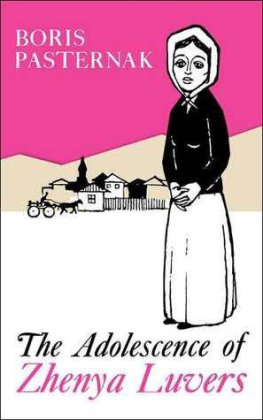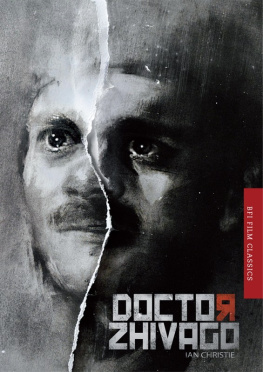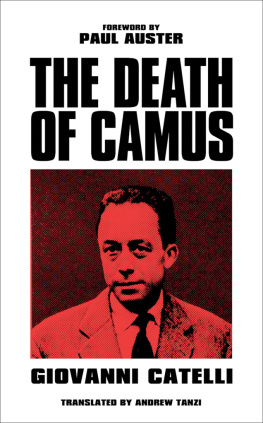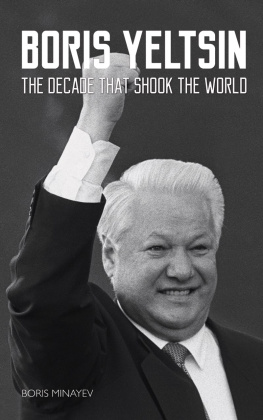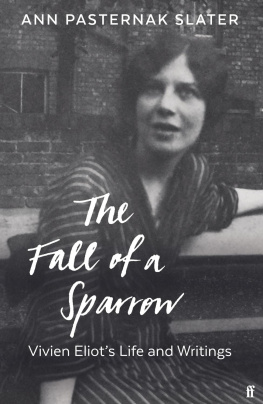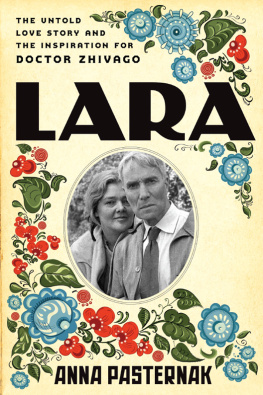Boris Pasternak - Doctor Zhivago
Here you can read online Boris Pasternak - Doctor Zhivago full text of the book (entire story) in english for free. Download pdf and epub, get meaning, cover and reviews about this ebook. year: 2010, publisher: Pantheon, genre: Detective and thriller. Description of the work, (preface) as well as reviews are available. Best literature library LitArk.com created for fans of good reading and offers a wide selection of genres:
Romance novel
Science fiction
Adventure
Detective
Science
History
Home and family
Prose
Art
Politics
Computer
Non-fiction
Religion
Business
Children
Humor
Choose a favorite category and find really read worthwhile books. Enjoy immersion in the world of imagination, feel the emotions of the characters or learn something new for yourself, make an fascinating discovery.

- Book:Doctor Zhivago
- Author:
- Publisher:Pantheon
- Genre:
- Year:2010
- Rating:4 / 5
- Favourites:Add to favourites
- Your mark:
- 80
- 1
- 2
- 3
- 4
- 5
Doctor Zhivago: summary, description and annotation
We offer to read an annotation, description, summary or preface (depends on what the author of the book "Doctor Zhivago" wrote himself). If you haven't found the necessary information about the book — write in the comments, we will try to find it.
Doctor Zhivago — read online for free the complete book (whole text) full work
Below is the text of the book, divided by pages. System saving the place of the last page read, allows you to conveniently read the book "Doctor Zhivago" online for free, without having to search again every time where you left off. Put a bookmark, and you can go to the page where you finished reading at any time.
Font size:
Interval:
Bookmark:

ALSO TRANSLATED BY
RICHARD PEVEAR AND LARISSA VOLOKHONSKY
The Brothers Karamazov by Fyodor Dostoevsky
Crime and Punishment by Fyodor Dostoevsky
Notes from Underground by Fyodor Dostoevsky
Demons by Fyodor Dostoevsky
Dead Souls by Nikolai Gogol
The Eternal Husband and Other Stories by Fyodor Dostoevsky
The Master and Margarita by Mikhail Bulgakov
The Collected Tales of Nikolai Gogol
Anna Karenina by Leo Tolstoy
War and Peace by Leo Tolstoy
Stories by Anton Chekhov
The Complete Short Novels of Anton Chekhov
The Idiot by Fyodor Dostoevsky
The Adolescent by Fyodor Dostoevsky
The Double and The Gambler by Fyodor Dostoevsky
The Death of Ivan Ilyich and Other Stories by Leo Tolstoy

This is a work of fiction. Names, characters, places, and incidents either are the product of the authors imagination or are used fictitiously. Any resemblance to actual persons, living or dead, events, or locales is entirely coincidental.
Translation, Translators Notes, and end notes copyright 2010 by Richard Pevear and Larissa Volokhonsky
Introduction copyright 2010 by Richard Pevear
All rights reserved. Published in the United States by Pantheon Books, a division of Random House, Inc., New York, and in Canada by Random House of Canada Limited, Toronto.
This Russian-language work was originally published in Italian by Giangiacomo Feltrinelli Editore, Milan, in 1957. Copyright 1957 by Giangiacomo Feltrinelli Editore, Milano, Italy.
Pantheon Books and colophon are registered trademarks of Random House, Inc.
Portions of parts two and three, along with the poems A Winter Night, The Star of the Nativity and Magdalene, were originally published in The Hudson Review.
Library of Congress Cataloging-in-Publication Data
Pasternak, Boris Leonidovich, 18901960.
[Doktor Zhivago. English]
Doctor Zhivago / Boris Pasternak; translated by Richard Pevear and Larissa Volokhonsky.
p. cm.
eISBN: 978-0-307-37996-2
1. Soviet UnionHistoryRevolution, 19171921Fiction. I. Pevear, Richard, 1943 II. Volokhonsky, Larissa. III. Title.
PG 3476. P 27d63 2010
891.7342dc22
2010000163
www.pantheonbooks.com
v3.1
I would pretend (metaphorically) to have seen nature and universe themselves not as a picture made or fastened on an immovable wall, but as a sort of painted canvas roof or curtain in the air, incessantly pulled and blown and flapped by a something of an immaterial unknown and unknowable wind.
BORIS PASTERNAK
Letter (in English) to Stephen Spender, August 22, 1959
The first edition of Doctor Zhivago, the major work of one of the most important Russian writers of the twentieth century, was an Italian translation published in 1957. The next year translations of the novel into English and a number of other languages appeared and Russian-language editions were published in Italy and the United States. But it would take another thirty years and the reforms of perestroika before the novel could be published in Russia. Those circumstances and all that determined them made the reception of the book highly problematical at the time of its appearance.
Pasternak had spent ten years, from 1946 to 1955, writing Doctor Zhivago. He considered it the work that justified his life and his survival, when so many of his fellow Russians had perished during the first decades of the century from war, revolution, famine, forced labor, and political terror. After Stalins death in 1953 came a period known as the Thaw, when there was a general easing of the mechanisms of repression and ideological control. The ban then in place on Pasternaks work (he had been in and out of favor time and again over the years) was lifted, and in 1954 he was able to publish ten poems from Doctor Zhivago in the journal Znamya (The Banner), where the title of the novel was mentioned for the first time. In January 1956, he sent the completed work to Novy Mir (New World), the most liberal of Moscow literary magazines, and it was also under consideration by Goslitizdat, the state publishing house.
In March 1956, Nikita Khrushchev, first secretary of the Communist Party and virtual head of the government, made a secret speech to the twentieth party congress denouncing the crimes of Stalin. This speech, which immediately became known all over the world, seemed to herald a further opening up of Soviet society. But in fact the thaw was brief. Stirrings of liberation following Khrushchevs speech, especially in such satellite countries as Hungary and Poland, worried the party leadership and caused them to tighten the controls again. The Poznan protests at the end of June were crushed by military force, as were the Polish and Hungarian uprisings later that same year.
The chill made itself felt in literary circles as well. In September 1956, the editors of Novy Mir returned the manuscript of Doctor Zhivago to Pasternak with a detailed letter explaining that the spirit of the novel, its emotional content, and the authors point of view were incompatible with the spirit of the revolution and the Marxist ideology that was the theoretical foundation of the Soviet state.
Pasternak was not surprised by the rejection. He had anticipated it, and in anticipation had even taken an extraordinary step, which surprised and outraged the Soviet authorities when they learned of it. In May 1956, an Italian Communist journalist by the name of Sergio dAngelo visited Pasternak at his country house in Peredelkino, a writers village near Moscow. He had heard about the existence of Doctor Zhivago and offered to place it with the Milanese publisher Giangiacomo Feltrinelli (also a Communist) for publication in Italian translation. According to dAngelos account, Pasternak, after hesitating for a moment, went to his study, brought out a copy of the novel, and handed it to him with the words: You are hereby invited to watch me face the firing squad. Since 1929, when Evgeny Zamyatin and Boris Pilnyak were vilified in the press for publishing their works abroad, no Soviet writers had had direct dealings with foreign publishers. Zamyatin had been forced to emigrate, and Pilnyak had eventually been shot. Pasternak knew that very well, of course, but he was intent on seeing Zhivago published abroad, if it could not be published at home, and was prepared to face the wrath of the authorities.
When publication of the Italian translation was announced for the fall of 1957, the news caused great uneasiness in the Soviet literary bureaucracy. Pressure was put on Pasternak to make Feltrinelli return the manuscript for revision, telegrams were sent to Milan, and finally, in October 1957, Alexei Surkov, the head of the Writers Union, went to Italy to speak with the publisher in person. But Feltrinelli refused to delay the novels release and had already licensed translation rights to publishers in other countries. As Lazar Fleishman wrote in Boris Pasternak: The Poet and His Politics:
Nothing promoted the swift growth of interest in Doctor Zhivago more than these clumsy attempts to prevent its publication. The novel became an international sensation even before its release. Its first printing of 6,000 was sold out on the first day, November 22. Prospective publications in other European languages promised to become similar bestsellers. The release of the Italian translation was accompanied by a deluge of articles and notices in the European and American press No work of Russian literature had received such publicity since the time of the revolution.
Font size:
Interval:
Bookmark:
Similar books «Doctor Zhivago»
Look at similar books to Doctor Zhivago. We have selected literature similar in name and meaning in the hope of providing readers with more options to find new, interesting, not yet read works.
Discussion, reviews of the book Doctor Zhivago and just readers' own opinions. Leave your comments, write what you think about the work, its meaning or the main characters. Specify what exactly you liked and what you didn't like, and why you think so.

